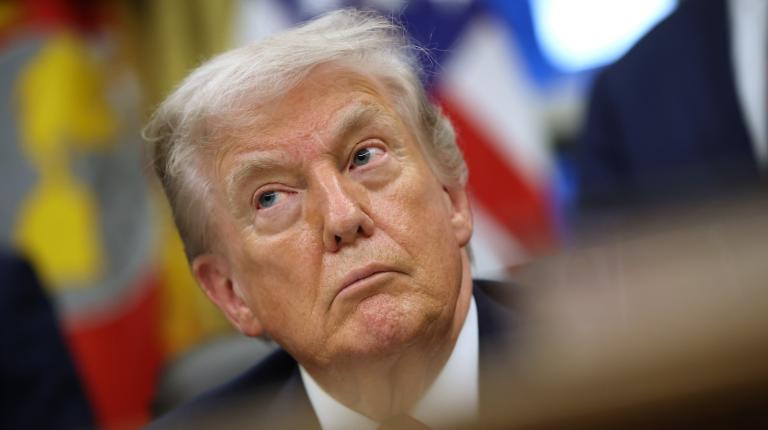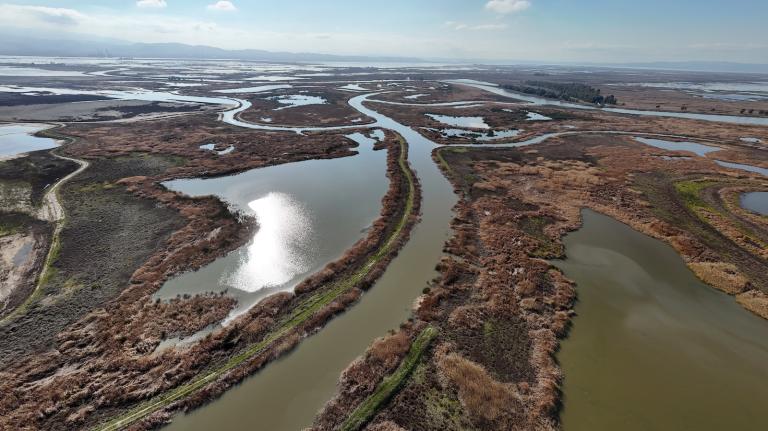UPDATE: The delegates at Cancun have approved a deal that makes important progress on forest protection, clean technology, adapting to global warming, measurement and verification, and the establishment of a Green Fund. While it doesn’t commit countries to specific post-2012 cuts in pollution yet, it’s an important step forward that could lead to a more comprehensive agreement in Durban, South Africa next year — and show politicians in the United States that our global competitors are willing to take action. If we don’t, we risk being left behind in the race to a low carbon economy.
The agreement was approved after a dramatic showdown in which Bolivia’s delegate, Pablo Solon, delivered a lengthy tirade about the negotiations and attempted to block action. The Mexican president of the Cancun negotiations, Patricia Espinosa, wouldn’t let Bolivia stand in the way — banging down the gavel and declaring the agreement approved despite Bolivia’s objections. Mexico conducted possibly the most transparent and open-hearted climate summit in history. As a result, they built enormous trust between delegates, making possible the breakthrough deal — but in the end Espinosa and the government of Mexico showed they also had the toughness to get the deal done and take climate action.
In the words of John Podesta and Andrew Light of the Center for American Progress:
As [Espinsoa] put it in the final show down with Bolivia, “consensus does not mean that one country has the right to veto” everyone else. Espinosa may very well have started a process of reform at this meeting which could bring the UNFCCC closer to fulfilling the mandate that we all desperately need it to achieve.
The deal has been praised by most environmental groups and governments (see Union of Concerned Scientists, National Wildlife Federation, and Greenpeace). It’s a good step forward, and now America and other countries must turn again to the work of rapidly cutting pollution from smokestacks, tailpipes, agriculture, and deforestation alike.
—————————-
 Photo: GeorgeBolivia and a small bloc of its ultra-leftist allies are obstructing progress on a climate agreement in Cancun. Even as China, the United States, and the overwhelming majority of both developing and developed nations seem ready to finally provide financial incentives for forest protection, a key part of an overall agreement, Bolivia has indicated it is willing to obstruct these measures, primarily because of its alleged opposition to markets.
Photo: GeorgeBolivia and a small bloc of its ultra-leftist allies are obstructing progress on a climate agreement in Cancun. Even as China, the United States, and the overwhelming majority of both developing and developed nations seem ready to finally provide financial incentives for forest protection, a key part of an overall agreement, Bolivia has indicated it is willing to obstruct these measures, primarily because of its alleged opposition to markets.
“We are not here to convert nature into a commodity,” Bolivian President Evo Morales said in his speech in Cancun, explaining his country’s intransigence.
So do the forest-protection programs (known as Reducing Emissions from Deforestation and Degradation, or REDD+) actually make nature into something to be bought and sold?
What Morales and his allies don’t say is that there is already a global market for forests — dead ones. Timber, palm oil, soybeans, cattle, oil and gas, and other products of deforestation can all be sold for a profit on the global market. Bolivia, for instance, made more than $5 billion last year from exporting natural gas, timber, and soybeans, much of those through deforestation.
Unfortunately, without an agreement in Cancun, there is no financial value given to living forests. As a result, for a rancher, a palm-oil plantation owner, a soybean farmer, or a logging company, the economic choice is clear: There’s way more immediate value in cutting down the forests than saving them.
The forest-protection proposals under consideration in Cancun aim to turn that deadly calculus upside down, and finally make trees worth more alive than dead. In exchange for reducing deforestation, developing countries could access billions of dollars in desperately needed green finance that they can then use to provide clean water, education, and health care to their people. Note that the forest-financing programs are purely voluntary: Countries don’t have to accept financial incentives for protecting forests, but they can if they want. If Bolivia wants to keep felling trees, it can, it just won’t have as much revenue and development as if it protected them.
Blocking an agreement in Cancun will not only allow forests to continue falling, and pollution to continue spewing into the atmosphere, it will also prevent the billions of people in rainforest nations who could use these resources from accessing them.
So, what’s to be done? It’s possible Bolivia’s objections could be overcome by strengthening measures intended to ensure that indigenous people decide on and benefit from any forest-conservation financing for their lands — a good idea in any case, though one that other rainforest nations have resisted out of concern that it could block or delay conservation projects from going forward.
But if concessions don’t work, there’s a precedent for dealing with abuse of the consensus process. During the 1990s, Saudi Arabia played the obstructionist role that Bolivia is playing today: using any tactics at its disposal to disrupt progress, even if it meant stopping every other country from acting. But the nations of the world just couldn’t let a petrostate disrupt any efforts to act on climate change, so they developed a way to deal with it. In the final plenary sessions of negotiations, the chair of the negotiations would ask if there were any objections to the final agreement. The Saudi delegate would raise his hand, start to speak, gesticulate — and the chair wouldn’t see him, and then declare the agreement adopted by unanimous consensus. It got the job done, and stopped one country from being able to stop the process, or at least demand an enormous ransom (in the case of Saudi Arabia, taking funds meant to help the poor adapt to climate change and using them to compensate oil-rich countries for declines in petroleum consumption) in exchange for letting it go forward. That’s something the planet can’t afford.
It’s going to be up to the president of the negotiations, Patricia Espinosa, to make sure no country, developed or developing, small or large, rich or poor, can stand in the way of a chance for desperately needed action on climate change.




